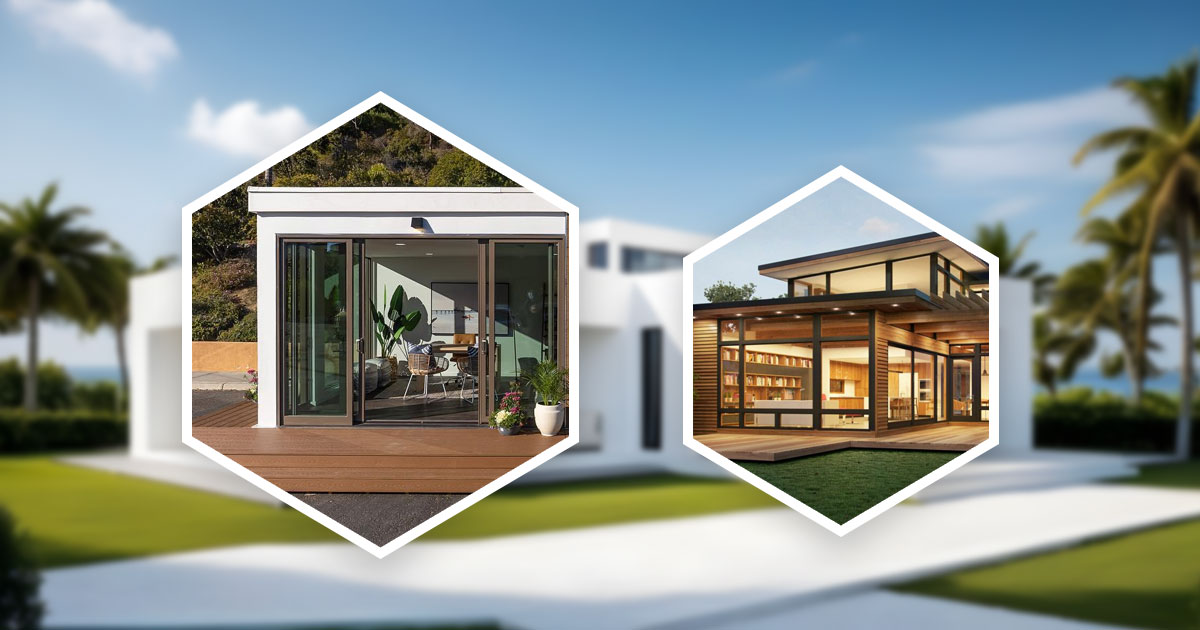Prefabricated Homes: Is It Right for You?

A rapidly changing housing landscape has resulted in the emergence of prefabricated homes as an alternative to traditional building methods. The efficiency, affordability, and customization possibilities associated with prefab homes have made them more popular among prospective homeowners.
Does it suit you? Embark on a journey through the universe of prefabs to weigh their pros and cons.
Prefabricated Homes Exposed
Modular or manufactured homes which are also referred to as prefabricated homes are constructed within factories in pieces. These modules or parts are then transported to the site where they are assembled by skilled teams of constructors.
Prefab houses come in different sizes and styles ranging from tiny one-story houses to large multi-storey mansions. In general, this method takes less time than conventional construction does due to its efficient nature, saving both time and money for everyone involved.
Advantages of Prefab Houses: Cost-effectiveness and Efficacy
Another gain of pre-fab dwellings revolves around their low prices. This is because the process can be optimized by manufacturers, eliminate waste hence cost reduction while undertaking it in a controlled industrial environment leading to affordability for buyers.
A typical prefab home usually costs between $100 and $200 per square foot excluding land rates and additional charges whereas regular home building may incur about $150-400 per square feet. As a result of its cheapness, prefab houses always draw those who cannot afford custom made houses or have constrained budgets.
In addition, working under factory conditions permits strict quality control measures thereby ensuring that there will be adherence to high standards during construction process. Hence prefab homes feature better workmanship with almost no chances of flaws or structural issues occurring.
Advantages of Prefabricated Houses: Flexibility along with Unique Construction
This type of dwelling provides extensive options for customization such as a wide choice when it comes to floor plans, designs and features. Homeowners therefore have freedom to make up their minds on how precisely they want their homes to look like based on the preferences of their hearts. Furthermore, future expansions do not require much labour given that new modules can be integrated into existing pre-fabricated units.
An additional merit for such projects is their adaptability: they can be installed virtually anywhere. Modules specially produced in advance allow to build on different land types or sizes. Hence, prefab houses are a feasible option even where property patches may seem unusual or problematic.
Shortcomings of Prefabs: Financing and Attitude
There are some drawbacks associated with this type of housing despite the fact there are numerous advantages to it.
Sometimes obtaining financial support may be complicated since some financiers may have doubts about giving loans for prefabrication business. This reluctance might arise from the belief that prefabs have lower quality compared to traditionally built ones which is contradictory to modern truth due to advances in machinery used in the process. For overcoming this obstacle, potential buyers might have to seek lending institutions specialized in financing pre-fabs.
Moreover, prefabricated houses can maintain a long-standing reputation as poor-quality or temporary living accommodations although that claim is often untrue. This kind of misconception could affect its resale value making it hard to sell a home later on. However, these views tend to change over time when more people adopt them as their own living styles become more popular and less unusual leading toward happening shift on market opinions regarding prefab homes soon enough.
Prefabricated Homes Shortcomings: Design Constraints & Look Sense
While prefabricated houses allow for extensive customization, there might be limitations in terms of design choices and aesthetics. In some cases, prefab manufacturers provide a limited range of styles, finishes or architectural elements, thus possibly constraining the ability to develop specific appearances or atmospheres.
In addition, local building codes and regulations may restrict the types of prefabricated homes that are allowed in certain areas. Prospective customers should conduct thorough research to ensure that their preferred prefab design complies with the relevant local laws and regulations.
Top Prefab Home Manufacturers
- Method Houses: Concentrates on sustainable prefab houses while emphasizing eco-friendly materials & construction techniques. The company’s homes are highly energy efficient and come in different designs that can be customized according to individual needs.
- Deer Valley Homebuilders: This firm constructs energy efficient dwellings in a controlled environment; it has a variety of designs including single-wide, double-wide as well as custom-made houses.
- Champion Homes: Champion Homes is popularly known through out America for using latest building methods and materials which enable them make energy saving durable houses.
Better Choices for Housing
It is important to keep an open mind as the real estate market continues to evolve. Considering all available options including prefab housing can help lead to perfect accommodation. By researching several manufacturers one can find an ideal match between their personal tastes and preferences in regard to style, quality, price etc. Besides, observing local construction laws and directives ensures that you will be able to install your prebuilt home on its intended site.
Finally whether or not a prefabricated home is the best choice depends on your situation priorities and taste. With extensive research prospective homeowners are able to determine whether such dwellings suit their purposes or not giving them direction on constructing their dream house.

Associate Writer • Environmental Technology and Sustainability Writer
Sophia writes articles on innovations in green technology, including ca energy, sustainable materials, and explores how technology can address environmental challenges and promote sustainability.

